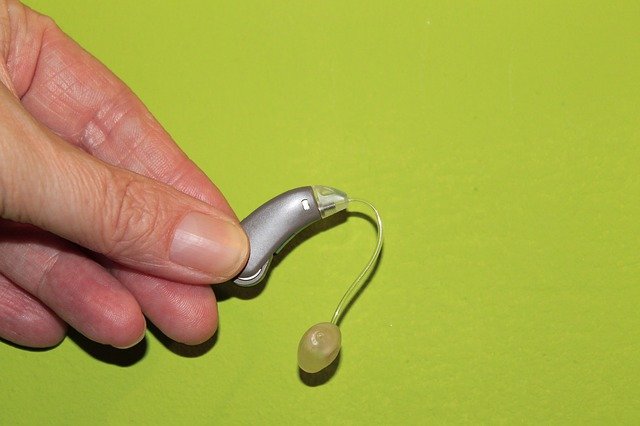Ear Infection and Hearing Loss: What’s the Connection? – Healthline
Ear infections are more typical in kids than in grownups, however no matter your age, it’s possible to experience short-term hearing loss when fluid and swelling establish in your middle ear.This post will take a better look at hearing loss due to an ear infection as well as other possible causes of…….

Ear infections are more typical in kids than in grownups, however no matter your age, it’s possible to experience short-term hearing loss when fluid and swelling establish in your middle ear.This post will take a better look at hearing loss due to an ear infection as well as other possible causes of hearing loss. Ear infections are much more typical in infants and young kids than in grownups, as their eustachian tubes are much smaller sized and it’s more difficult for fluid to drain pipes out. If you have discomfort and pressure in your ear, you may think that you have one.But children and young children normally do not have the words yet to inform you that they have ear discomfort. Pus or fluid draining pipes out the ear is a typical indication of an ear infection. A kid with an ear infection might in some cases experience some diarrhea or vomiting.Many of these signs are likewise indications of an ear infection in older grownups and kids.
According to the UK’s National Health Service, hearing loss has numerous possible causes, and an ear infection is simply among them.
Ear infections are more typical in kids than in grownups, however no matter your age, it’s possible to experience short-term hearing loss when fluid and swelling establish in your middle ear.This post will take a more detailed take a look at hearing loss due to an ear infection along with other possible reasons for hearing loss. Understood as otitis media, a middle ear
infection happens when germs or an infection triggers swelling and fluid accumulation in the location behind the eardrum. This kind of middle ear infection can cause momentary hearing loss. The 2 most typical type of otitis media
consist of: Severe otitis media. When the
- eustachian tube, which ranges from the back of the throat to the middle of the ear, ends up being swollen, it can trap fluid inside television. This fluid can end up being contaminated, triggering discomfort and swelling. In some cases, this kind of infection can trigger some hearing impairment.Otitis media with effusion. Fluid or mucous might develop inside the eustachian
- tube, even after the infection cleans up. This fluid accumulation can likewise hinder your capability to hear well.Less typical sort of otitis media consist of: Persistent suppurative otitis media. This kind of infection typically takes place as an outcome
of issues of continuous severe otitis media.
- It’s defined by a consistent discharge from the middle ear brought on by perforation of the eardrum. It typically triggers hearing loss, particularly in kids. Adhesive otitis media. This includes the collapse of the eardrum, which then complies with the structures and wall of the middle ear. It generally takes place when the eustachian tube does not work correctly for an extended duration of time. Ear infections are a lot more typical in children and children than in grownups, as their eustachian tubes are much smaller sized and it’s more difficult for fluid to drain pipes out. The National Institute on Deafness and Other Communications
Disorders reports that 5 out of
6 kids will experience a minimum of one ear infection by the time they turn 3 years old.Usually, the hearing loss that establishes from a middle ear infection is short-term. As soon as the fluid drains pipes out of the middle ear, it no longer prevents the transmission of
sound vibrations. The fluid can remain for some time. While the signs of a normal case of otitis media will generally start to solve within about 48 to 72 hours, the fluid that’s developed in the center ear might stick around for as long as 3 months. You might have problem hearing plainly while the fluid stays trapped.Ear infections can be uncomfortable and unpleasant. If you have discomfort and pressure in your ear, you may presume that you have one.But infants and young children normally do not have the words yet to inform you that they have ear discomfort. How do you understand if your kid has an ear infection? Typical
indications that might be an indicator of an ear infection in young kids consist of: Body movement.
Look out for your infant or young child pulling on their ear. This might be a sign of ear discomfort. Fever. A fever is an indication that the body is attempting to combat off an infection.Fussiness or
irritation. Is your kid irritable and grouchy for no other factor? Are they sobbing more than normal,
- too?Ear drain. Pus or fluid draining pipes out the ear is a typical indication of an ear infection. The fluid might be yellow or bloody, which represents a burst eardrum.Trouble hearing. When fluid develops in the center ear, itcan produce momentary hearing loss.Unsteadiness. The fluid in the ear can likewise disturb your kid’s sense of balance, causing unsteadiness and even dizziness.Inability to rest
- conveniently. Resting can trigger an unpleasant shift in pressure within the middle ear.Diarrhea. A kid with an ear infection might often experience some diarrhea or vomiting.Many of these signs are likewise indications of an ear infection in older grownups and kids. In basic, the most typical reasons for hearing loss consist of: aging direct exposure to loud sounds genes Some individuals are likewise born with hearing loss, which is called genetic hearing loss.But there are other, less typical, causes
- of hearing loss. Some medications can trigger damage to your hearing or balance. According to the American Speech-Language-Hearing Association, this can consist of: big amounts of aspirin loop diuretics some chemotherapy representatives some aminoglycoside prescription antibiotics like streptomycin Hearing loss can likewise occur from: It’s possible to unexpectedly lose your hearing, particularly in one ear. Loud sounds, like surges, have actually been understood to trigger
- unexpected hearing loss.But abrupt deafness, or abrupt
- sensorineural
hearing loss (SSHL), can likewise happen when something goes incorrect with sensory organs in the middle ear. According to the National Institute on Deafness and Other Interaction Conditions, SSHL can take place as an outcome of: head injury infection conditions
- of the inner ear other conditions The company above states that just about 10 percent of the SSHL cases have a recognizable cause.Symptoms connected with a normal ear
infection can increase, which indicates you’ll require to get in touch with a physician. Look for healthcare if you or your kid has an ear infection and experience any of the following signs: fever of 102.2 ° F(39 ° C)or greater pus or fluid originating from the ear hearing loss signs that become worse or last longer than 3 days If your kid experiences regular ear infections,
- or the infections appear to be impacting their hearing
- , speech, or language advancement, talk with their medical professional. A hearing problems from regular ear infections might hamper their speech and language advancement in the crucial early years.It’s likewise essential to call
your physician right now if you experience unexpected, unusual hearing loss. The National Institute on Deafness
- and Other Communications Disorders states you may spontaneously recuperate your hearing
- within 1 or 2 weeks,
- as about half of individuals with unexpected hearing loss do. Postponing your medical diagnosis might minimize the efficiency of the treatment you receive.If you do not have a routine physician, think about going to a walk-in neighborhood or a retail center to be examined.In the past, prescription antibiotics were typically recommended for ear infections. According to a 2010 research study evaluation
, we now understand that 80 percent of ear infections normally clear up in about 3 days without using prescription antibiotics. Utilizing prescription antibiotics can make the germs that’s accountable for the infection, resistant to prescription antibiotics. Plus, utilizing prescription antibiotics poorly or when you actually do not require them can cause antibiotic resistance, a continuous obstacle in the medical community.In some cases, however, prescription antibiotics might be the very best strategy.
The American Academy of Pediatrics, advises using prescription antibiotics for ear infections in kids:6 months and
older with moderate to serious ear discomfort for two days, or a temperature level of 102.2 ° F( 39 ° C)or greater If both ears are included, 24 months or more youthful Natural home remedy for an ear infection If you or your kid has a normal ear infection without extreme signs, you may attempt a few of these natural home remedy: Painkiller. A dosage of non-prescription medication such as acetaminophen or ibuprofen can minimize the discomfort and fever.Compresses. Whether you choose a warm compress or an ice bag, this approach is safe for grownups and kids. If doing so assists you feel better.A modification in sleeping position, you can even alternate them. Attempt putting additional pillows under your head to assist your ear drain when you go to sleep
at night.Distraction. Attempt a diversion strategy to take their mind off their uncomfortable ear if your kid is truly picky. A preferred toy, treat, or video game may do the trick.Ear infections can in some cases trigger hearing loss.
- This is because of swelling and fluid accumulation in the location behind the eardrum. Hearing loss from an ear infection is generally short-lived. When the ear infection begins to clean up
, you’ll likely discover that your hearing will start to enhance. Often the fluid can remain in the middle ear for numerous weeks or even as long as 3 months. You might have difficulty hearing appropriately while the fluid stays trapped.If your hearing does not enhance when your ear infection has actually cleaned up, call your physician to get your hearing took a look at and to make
- sure your hearing loss isn’t brought on by some other condition.
Source: https://www.healthline.com/health/ear-infection-hearing-loss
- This is because of swelling and fluid accumulation in the location behind the eardrum. Hearing loss from an ear infection is generally short-lived. When the ear infection begins to clean up
- It’s defined by a consistent discharge from the middle ear brought on by perforation of the eardrum. It typically triggers hearing loss, particularly in kids. Adhesive otitis media. This includes the collapse of the eardrum, which then complies with the structures and wall of the middle ear. It generally takes place when the eustachian tube does not work correctly for an extended duration of time. Ear infections are a lot more typical in children and children than in grownups, as their eustachian tubes are much smaller sized and it’s more difficult for fluid to drain pipes out. The National Institute on Deafness and Other Communications





